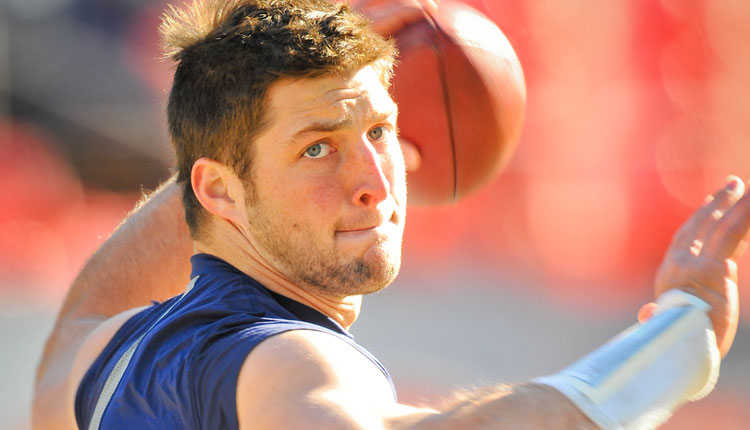Tim Tebow and a Hope for Autism
At the moment, the biggest story in all of professional sports has been the unprecedented play of NFL quarterback Tim Tebow. For those unaware, Tebow is currently the starting quarterback for the Denver Broncos and has led his team to an improbable string of victories over the last several months. After taking over an ineffective team that began the season with a 1-4 record, Tebow, with the help of his teammates, have managed to put together a 7-1 record and now have the Broncos in contention for a playoff berth.
The winning streak itself is not necessarily what’s captivating the nation’s attention, but rather how the winning is taking place and the circumstances surrounding it.
In what has turned into a scene from "Groundhog Day," Tebow has managed to orchestrate victories in near-miraculous fashion week after week, leaving many analysts, pundits and football fans perplexed as to how it’s happening. With six second-half comebacks in the last two months (3 of which occurring in overtime), Tebow has made a habit of making the impossible possible. This all comes from a player who was repeatedly told that he was not good enough to play in the NFL and would never be an effective quarterback in the league.
At this point, many might be wondering what connection Tim Tebow has with autism. The answer is, none that I am aware of. However, as a parent of a child with autism and a huge football fan, the events surrounding Tim Tebow have been nothing short of mesmerizing. And at a time when hope is scarce and obstacles are abundant for many families facing the disorder, it’s hard not to draw inspiration from the Tebow story. Much like the "underdog" status assigned to him throughout his life, those on the autism spectrum are accustomed to similar labels, often being told what they cannot do and what they will not be able to accomplish.
To fully appreciate the Tim Tebow phenomenon, it’s important to know his backstory as well.
In 1986, Pam Tebow conceived Tim while serving as a missionary in the Philippines and upon visiting a doctor, was told to "immediately" abort her baby if she wanted to preserve her own life. The doctor stated that she was not even carrying a baby at all, but rather a big clump of tumor and tissue.
As a person of strong conviction and faith, Pam refused to follow through with the abortion and despite an incredibly difficult pregnancy, gave birth to Tim. Because the placenta was not properly attached during pregnancy, Tebow was born extremely malnourished and consequently labeled a "miracle baby." Even in the womb, Tebow had overcome incredible odds.
Like his parents, Tebow is an evangelical Christian and never shies away from sharing his faith when he is interviewed by the media.
Because of this faith, Tebow has become a lightening rod of controversy about what role religion should play within professional sports. Despite one’s own religious convictions, it’s impossible to deny that there is something special surrounding this young man and his story should provide a beacon of hope for anyone facing obstacles and challenges, particularly those within the autism community.
For anyone who has ever been told that their child will be institutionalized, will never be able to marry, will never speak, will never hold a regular job, will never have friends, will never be "normal," will never be able to drive a car and any other "never," they can take comfort in knowing that incredible odds are defied all the time, only if one is willing to stay positive and remain defiant in the face of conventional wisdom.
As Tebow stated in his most recent press conference, “If you believe, unbelievable things can sometimes be possible.”
Daniel Tammet, Raun Kaufman, James Durbin, John E. Robison, and Jason McElwain are just a few faces of autism that are a testimony to this fact and proof that the impossible truly does become possible — not only with Tim Tebow, but those with autism as well.

